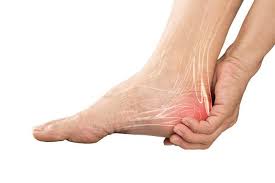Neuropathy is a condition that affects millions of individuals in the United States. This condition disrupts the normal functioning of nerves, potentially leading to discomfort, changes in sensation, or mobility issues. Understanding neuropathy requires exploring its various types, causes, symptoms, and management strategies.
What Is Neuropathy?
Neuropathy refers to a condition resulting from damage to the peripheral nervous system, which is responsible for transmitting messages between the brain, spinal cord, and the rest of the body. This damage disrupts these communication processes, leading to various sensory, motor, and autonomic symptoms. Neuropathy is not a single condition; it is a term used to describe multiple disorders involving nerve damage.
What Are the Different Types?
Neuropathy can be classified into several types based on the affected nerves and the nature of the damage. Some common types include:
- Peripheral Neuropathy: Affects the nerves outside the brain and spinal cord, often impacting the hands and feet.
- Autonomic Neuropathy: Impacts nerves that control involuntary bodily functions, such as heart rate, digestion, and blood pressure.
- Focal Neuropathy: Affects a single nerve, causing symptoms in a specific area of the body, such as the face, hand, or torso.
What Are the Causes and Symptoms?
Neuropathy can develop due to diverse factors. Common causes include diabetes, infections, traumatic injuries, and autoimmune diseases, among others. Lifestyle issues such as heavy alcohol consumption and exposure to toxins may also contribute. Other causes include genetic predisposition and certain medical treatments like chemotherapy.
Symptoms vary widely depending on the type and severity of the condition. They may include numbness, tingling, sharp or burning pain, and muscle weakness. Some individuals may experience heightened sensitivity to touch, while others encounter balance and coordination issues. Autonomic neuropathy may cause symptoms related to irregular heartbeats, digestive issues, or bladder dysfunction.
How Do the Different Types Affect You?
The impacts depend primarily on the specific type and the nerves involved. Peripheral neuropathy often affects daily activities such as walking or grasping objects due to weakness or sensory loss in the limbs. Autonomic neuropathy can disrupt key bodily functions, resulting in symptoms such as fainting, gastrointestinal issues, or irregular heartbeats. Focal neuropathy can result in localized pain, weakness, or even facial paralysis, depending on the affected nerve.
What Are the Available Treatment Options?
While the treatment approach varies based on the type and cause, several options can help manage symptoms and improve quality of life. These include:
- Lifestyle changes, such as maintaining a healthy diet, exercising regularly, and avoiding alcohol or smoking.
- Physical therapy to improve strength, mobility, and coordination for motor-related issues.
- Platelet-rich plasma (PRP) therapy aims to promote nerve repair and reduce symptoms through regenerative medicine techniques.
- Transcutaneous electric nerve stimulation (TENS) delivers gentle electrical impulses to stimulate affected nerves and reduce pain.
- Topical pain-relieving agents, like creams containing lidocaine or capsaicin that provide localized pain relief.
Learn More About Your Condition Today
Understanding neuropathy can help you take steps toward managing the condition. By exploring its types, symptoms, and available treatments, you can work with healthcare professionals to find a suitable path forward. If you are ready to explore tailored strategies or learn more, speak with a medical expert who can help address your specific needs. Take the first step toward improved health and well-being today.
- Choosing the Right Plastic Surgeon for Your Cosmetic Procedure
- Understanding Different Types of Laser Treatments for Skin Rejuvenation
- Why a Family Dentist is Key for Maintaining Oral Health
- The Benefits of Regular Visits to a Wellness Spa
- Exploring the Emotional and Psychological Triggers of Eating Disorders


Leave a Reply